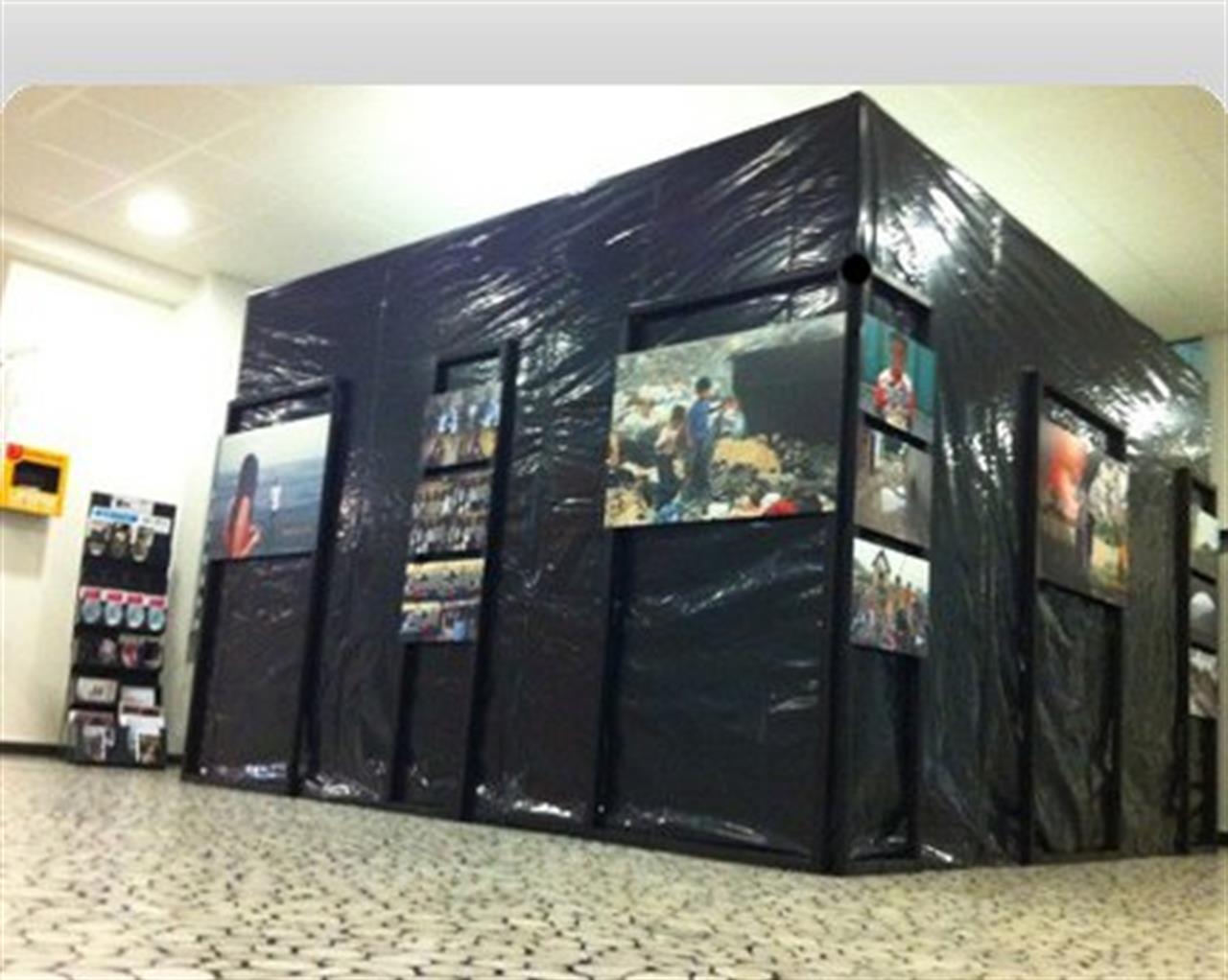What happens to people after they get deported? This is the question that brought German filmmaker Ralf Jesse to develop Blackbox Abschiebung (Blackbox Deportation), his latest project now exhibited at the Haus der Kulturen der Welt in Berlin.
Blackbox Deportation explores the lives of nine people deported from Germany to their countries of origin. Jesse interviewed the deportees and asked them to document their everyday struggle to re-build a life back in their home countries: Kosovo, Nigeria, Georgia and Eritrea. The pictures and the videos sent by the deportees were used to cover the sides of the two and a half meter black box that gives the name to the project.
“Most of the people portrayed in this project lived in Germany for 15, maybe 20 years, their children were born here. I asked myself how it’s like for them to live in a country they don’t know anymore.” Says Jesse. “Most of the time people who get deported don’t have any relatives back in their home countries. They’ve been living here for too long, their families are spread all over Europe. They don’t have a life to return to. Their life is in Germany.”
According to the German Federal Office for Migration and Refugees, about 10.000 people are deported from Germany every year . Only 16% of the refugees who arrived in Germany in 2009 were granted asylum, while 87,000 people were given a provisional status, which is a suspension of deportation that could be revoked in case the situation in their home countries changes. This is what happened to Faruk Feriz, a Kosovarian who fled to Germany during the war and lived there for 17 years, until he was deported in September 2010. On one side of the black box it’s possible to see a photo of the house he returned to: it’s dark and empty. Since Kosovo has been recognized as a sovereign country it is now considered safe to repatriate its citizens. In 2010 Germany made an agreement with the Kosovarian government to start returning its citizens.
However deportation doesn’t only affect people coming from conflict zones and development countries. “Deportees are just common people, like you and me. It could happen to us if we didn’t have the right papers”. Warns Jesse.
As a matter of fact one of the Blackbox Deportation protagonists is a 41 year old German who has lived all his life in the U.S. and was deported to Germany last year. “This is one of the most interesting cases because he’s facing the same problems as other deportees are facing. Of course he’s better off , because the social system is better in Germany than in Kosovo, but he’s facing the same problems: he doesn’t speak the language, he doesn’t have any friends, his family is in the US.” Says Jesse. According to him all the deportees portrayed in this project have in common the feeling of being uprooted, drawn out of their lives and being faced with new lives which they can’t understand. “Blackbox Deportation is about people who are starting their lives from scratch.”
The project which was supported by RUHR.2010 and Fonds Soziokultur, will be displayed at the Haus der Kulturen der Welt until May 8.
Vuoi accedere all'archivio di VITA?
Con un abbonamento annuale potrai sfogliare più di 50 numeri del nostro magazine, da gennaio 2020 ad oggi: ogni numero una storia sempre attuale. Oltre a tutti i contenuti extra come le newsletter tematiche, i podcast, le infografiche e gli approfondimenti.

